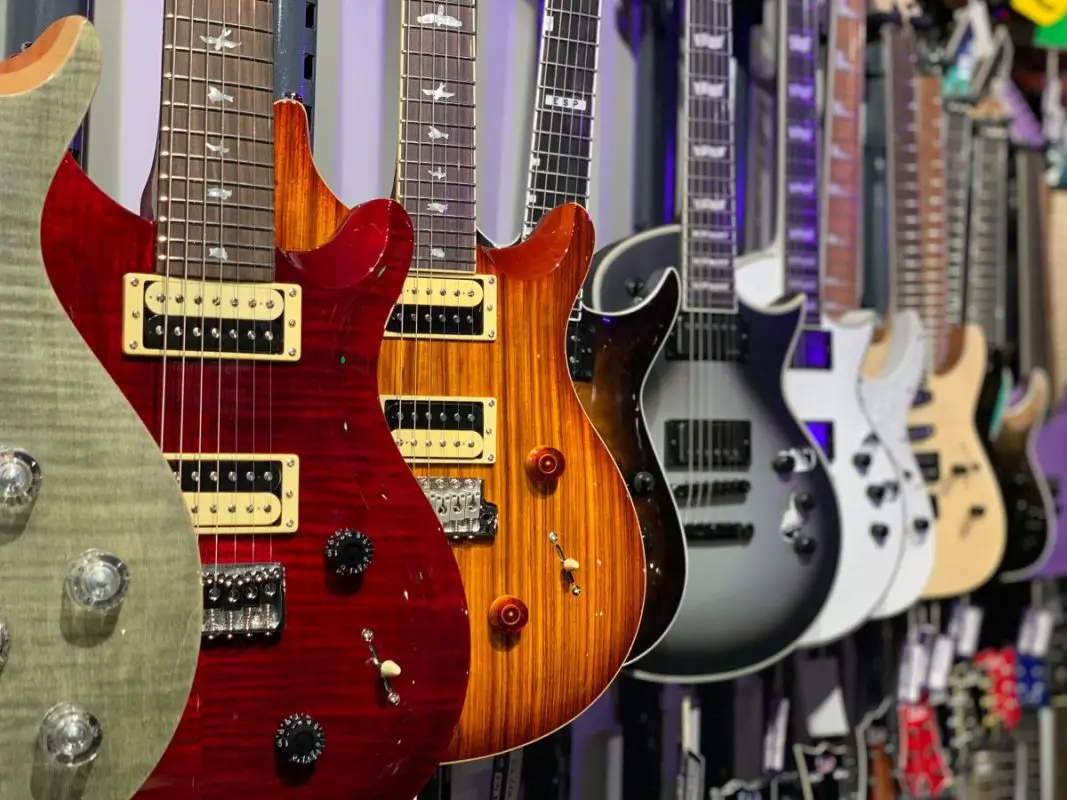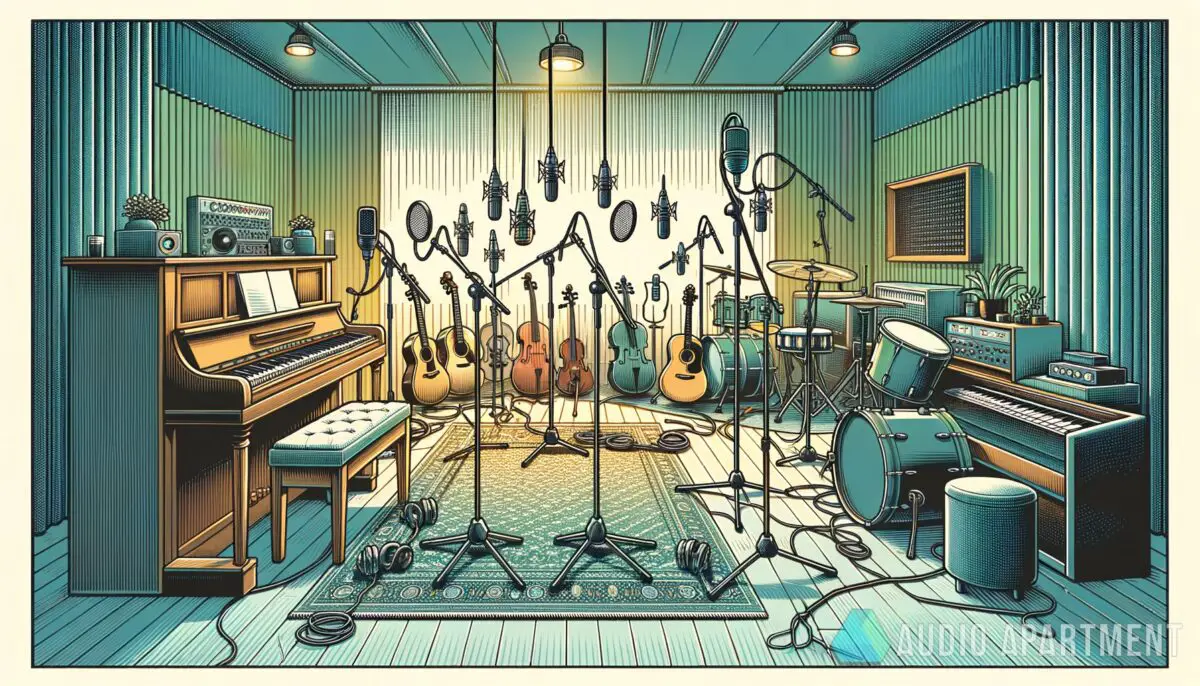Are you ready to dive into the electrifying world of electric guitars? Whether you’re a seasoned guitarist or just starting your musical journey, this blog post is your gateway to a world of limitless possibilities and sonic exploration. From the iconic riffs of rock ‘n’ roll to the soulful melodies of blues, electric guitars have been shaping the soundscape of popular music for decades. Get ready to unleash your inner rockstar and let the magic of electric guitars ignite your passion for music!
What is an electric guitar? It’s an amplified version of the traditional guitar, outfitted with magnetic pickups that transform string vibrations into electric signals. These signals are then fed into an amplifier, turning what was once quiet strumming into a force that can fill stadiums.
What is the origin of the electric guitar?
First off, it’s important to know that the electric guitar wasn’t born in a day. Like a great song, it evolved, with many contributors adding their unique touches. It’s a story of invention and reinvention, innovation, and sheer musical passion.

Who were the early innovators?
The journey began in the United States in the midst of the jazz age. American Lloyd Loar, an engineer at Gibson, developed the first microphone for the guitar back in 1920. But it wasn’t until 1935 that the American guitar manufacturer Rickenbacker produced the first electric guitar. Can you believe it took over a decade from concept to creation?
Let’s not forget John Dopyera and George Beauchamp, who, by the end of the 1920s, had crafted a guitar with a metallic body and an aluminum disc inside. This construction allowed for a sound five times louder than average, changing the game entirely! It’s like when Captain America went from scrawny Steve Rogers to a super soldier – a complete game-changer!
The need for a louder instrument was primarily driven by jazz bands, who found that acoustic guitars couldn’t compete with the volume of the other instruments. As a result, the guitar was often drowned out, relegated to a mere accompaniment role. But with these innovations, the guitar finally had the volume to stand on its own.
AKAI Professional MPK Mini MK3

AKAI Professional MPK Mini MK3
How did the electric guitar develop over time?
Like a good bottle of wine, the electric guitar only got better with time. The guitar continued to evolve, each new invention adding to its sound, versatility, and ease of use.
In 1922, the first amplified guitar hit the market: the Gibson model L-5. Although not a fully electric guitar, this model had two microphones and volume control buttons, marking a significant step toward the electric guitar we know today.
And then came Leo Fender, a name that’s become synonymous with electric guitars. He designed the first guitar with solid and removable parts, which made it easier for musicians to replace worn-out or broken parts. Trust me, as a musician, I can’t tell you how much of a lifesaver this innovation was.
In 1931, the Electro String Company began to market the first electric guitars constructed with aluminum and cast steel. These became known as “pans” – not the most glamorous name, but a landmark nonetheless!

How did the electric guitar make an impact?
From jazz to rock ‘n’ roll, the electric guitar has left an indelible mark on the world of music. It didn’t just change the way we play; it revolutionized the way we listen.
Who were some key players?
Names like Jimi Hendrix, Eric Clapton, and BB King might come to mind when we think about electric guitar heroes. These guitarists, each with their unique style, took the electric guitar to new heights. They didn’t just play music; they expressed their deepest emotions through their instruments. And remember that unforgettable scene from Back to the Future, when Marty McFly blew everyone’s minds with his electric guitar performance? It’s a perfect example of the kind of impact electric guitars have had on our culture.
The introduction of the electric guitar gave musicians the freedom to experiment and create new genres of music. It allowed them to break away from the traditional acoustic sound, paving the way for rock, blues, and many other music genres.
Fast forward to today, the electric guitar is as relevant as ever. It continues to shape music across genres, from pop and rock to jazz and country.
How does it influence modern music?
Today’s artists are not only using the electric guitar in innovative ways but are also blending traditional playing techniques with modern technology. For instance, many musicians now use digital effects and amplification to create new sounds. Think of Billie Eilish‘s brother Finneas, who often records her music in their home studio with a blend of real and digital instruments. This is where the electric guitar really shines, adding that authentic touch to any piece of music.
What are some well-known electric guitar models?
The table below presents a selection of electric guitar models along with their key features. Whether you’re a seasoned guitarist or just starting your musical journey, this overview will help you explore various options available in the realm of electric guitars. From classic designs to modern innovations, this table provides a glimpse into the diverse world of electric guitars.
| Guitar Model | Body Material | Pickup Configuration | Neck Material | Bridge Type | Price Range ($) |
|---|---|---|---|---|---|
| Fender Stratocaster | Alder | SSS (Single-Single-Single) | Maple | Tremolo | 1,000 – 2,500 |
| Gibson Les Paul | Mahogany | HH (Dual Humbucker) | Mahogany | Tune-O-Matic | 2,500 – 4,000 |
| Ibanez RG550 | Basswood | HSH (Humbucker-Single-Humbucker) | Maple | Floyd Rose | 800 – 1,500 |
| PRS Custom 24 | Mahogany | HH (Dual Humbucker) | Mahogany | Tremolo | 3,000 – 4,500 |
| Gretsch Electromatic | Maple | HH (Dual Humbucker) | Maple | Bigsby | 600 – 1,200 |
Advantages and disadvantages of electric guitars
Electric guitars have become a staple in modern music, offering a wide range of sounds and styles. While they have many advantages, it’s important to consider the disadvantages as well. In this section, we will explore both the pros and cons of electric guitars to help you make an informed decision.
Advantages of electric guitars
Electric guitars come with several advantages that make them a popular choice among musicians:
- Versatility: Electric guitars offer a vast array of tones and effects, allowing you to explore various musical genres. From clean and smooth jazz tones to heavy metal distortion, you can achieve a wide range of sounds by adjusting the guitar’s settings and using effects pedals.
- Amplification: Unlike acoustic guitars, electric guitars require an amplifier to produce sound. This amplification allows you to play at different volumes, making them suitable for small intimate gigs or large concerts. Additionally, it enables you to experiment with different sounds and effects by adjusting the amplifier settings.
- Sustain and Feedback: Electric guitars are known for their ability to sustain notes for extended periods, creating a vibrant sound. This sustained sound quality is particularly useful for solos and melodic lines. Additionally, controlled feedback can be used creatively to add texture and depth to your playing.
- Playability: Electric guitars generally have thinner necks and lower string action, making them easier to play for beginners or those with smaller hands. The lighter gauge strings also require less finger pressure, reducing finger fatigue during extended playing sessions.
- Recording Capabilities: Electric guitars can be easily connected to recording equipment or computers, allowing you to capture high-quality recordings. This feature is particularly beneficial for musicians who want to produce their music or share their performances online.
Disadvantages of electric guitars
While electric guitars offer numerous advantages, there are some drawbacks to consider:
- Cost: Compared to acoustic guitars, electric guitars tend to be more expensive due to the additional components required, such as amplifiers, cables, and effects pedals. This can make them less accessible for individuals on a tight budget.
- Portability: Electric guitars, along with their associated equipment, can be bulkier and heavier than acoustic guitars. This makes them less convenient to carry around, especially when traveling or performing in small venues with limited space.
- Dependence on External Power: Electric guitars rely on electricity to function, meaning you will need access to power sources or batteries to play them. If you find yourself without electricity or a drained battery, you won’t be able to use your electric guitar until power is restored or new batteries are obtained.
- Maintenance and Repairs: Electric guitars have more intricate components than acoustic guitars, which may require occasional maintenance or repairs. Issues such as electronics malfunction, fret buzzing, or potentiometer crackling may arise over time, necessitating the assistance of a professional technician.
- Lack of Natural Acoustic Sound: Unlike acoustic guitars, electric guitars don’t produce sound naturally without amplification. If you enjoy the warm and natural resonance of an acoustic instrument, you may find the amplified sound of an electric guitar somewhat lacking in comparison.
By weighing the advantages and disadvantages of electric guitars, you can determine whether they suit your musical preferences, budget, and practical needs. Remember to consider your playing style, genre of music, and personal preferences before making a decision.
If you want even more tips and insights, watch this video called “Beginner’s Guide To Electric Guitar Gear – Guitars, Amps & Pedals” from the Andy Guitar YouTube channel.
Frequently asked questions (FAQ)
Do you still have questions about electric guitars? Below are some of the most commonly asked questions.
Why is the electric guitar so popular in music production?
The electric guitar is popular in music production due to its versatility. It can create a vast range of sounds and tones, which can be manipulated further using effects pedals and amp settings. This makes it a flexible tool for composers and producers, fitting into nearly every music genre.
Can I record an electric guitar with just my computer?
Absolutely, you can! With a simple audio interface and some free software, you can record your electric guitar directly into your computer. It’s a budget-friendly way to start your music production journey, and you can always upgrade your gear as you progress.
How do I choose the right electric guitar for my home studio?
Choosing the right electric guitar for your home studio depends on your personal style and the genre of music you intend to play. It’s a good idea to try out different guitars in a store and see which one feels and sounds right to you. Remember, the most expensive guitar isn’t necessarily the best fit for you!
Conclusion
Alright, folks, we’ve reached the end of our musical journey. It’s been a real strumple, but I hope I’ve plucked the right notes for you!
I’ve covered a lot, but there’s always more to discuss. So, did I hit all the right notes for you? Let me know in the comments! I read and reply to every comment. I’d love to hear what you think. And if you found this article helpful, why not share it with a music-loving friend? For more tips and tricks on home recording and music production, be sure to check out my full blog. Until next time, keep those riffs tight and your tone brighter!
Key takeaways
We’ve explored a lot about the electric guitar. Here are some key takeaways:
- The electric guitar has significantly shaped music over the decades, from the raw rock and roll of the 1950s to the genre-blending sounds of today.
- The electric guitar revolutionized music by providing a louder instrument that could stand on its own, leading to the emergence of genres like rock ‘n’ roll and blues.
- Key players in the electric guitar’s history include legendary musicians such as Jimi Hendrix, Eric Clapton, and BB King, who pushed the boundaries of what could be achieved with the instrument.
- Modern electric guitars offer versatility in sound, thanks to various tones and effects, and they can be easily connected to recording equipment for high-quality recordings.
- While electric guitars have advantages such as versatility and sustain, they also come with disadvantages like higher costs, reliance on external power, and a lack of natural acoustic sound.















